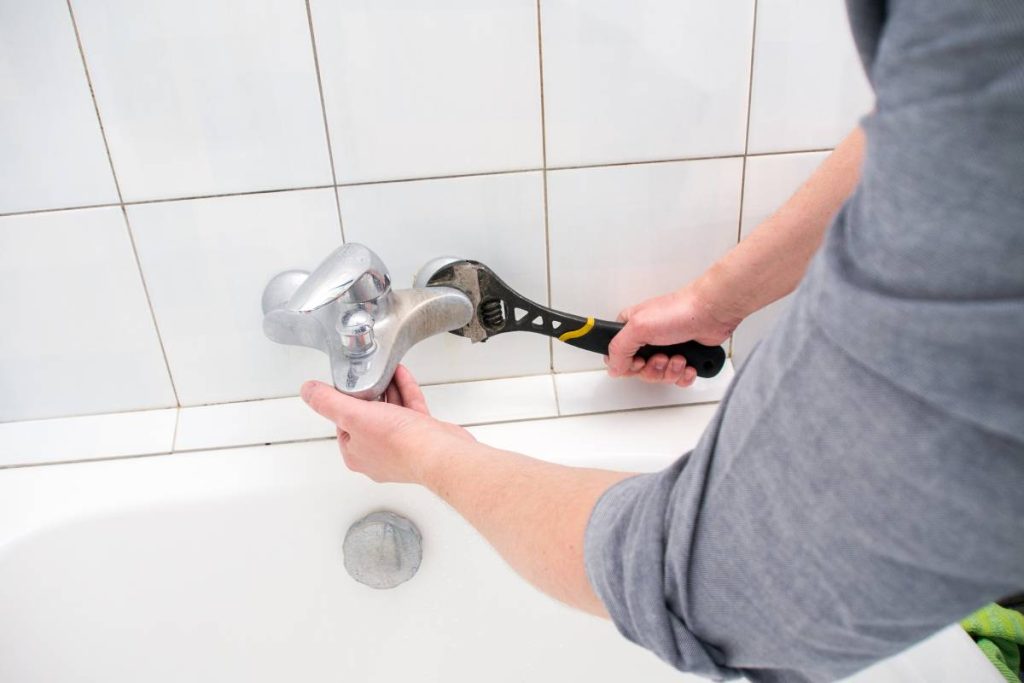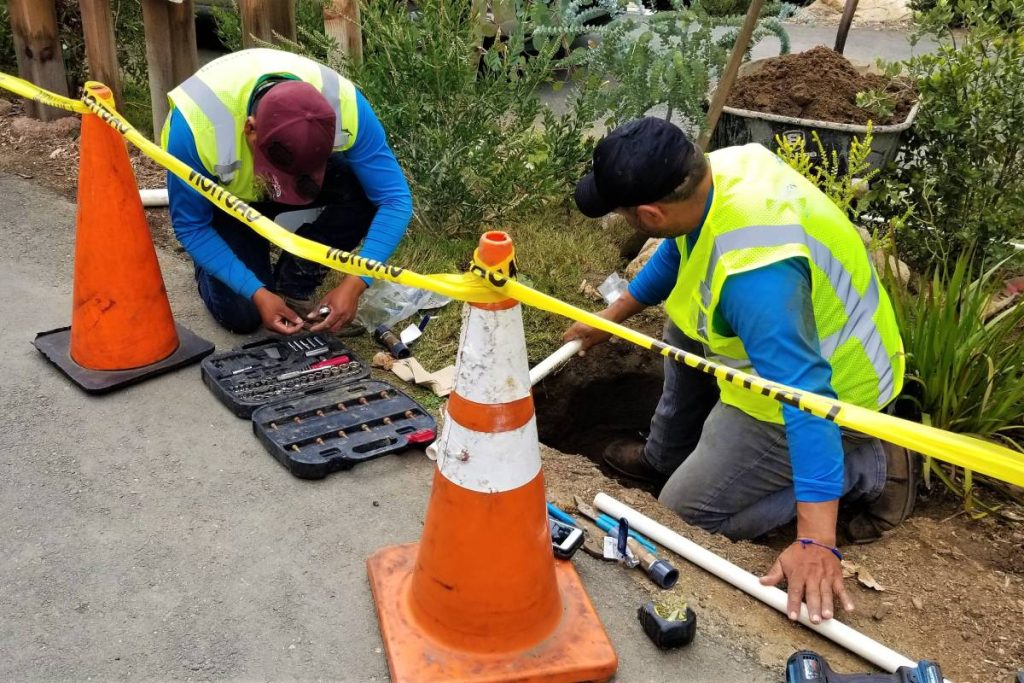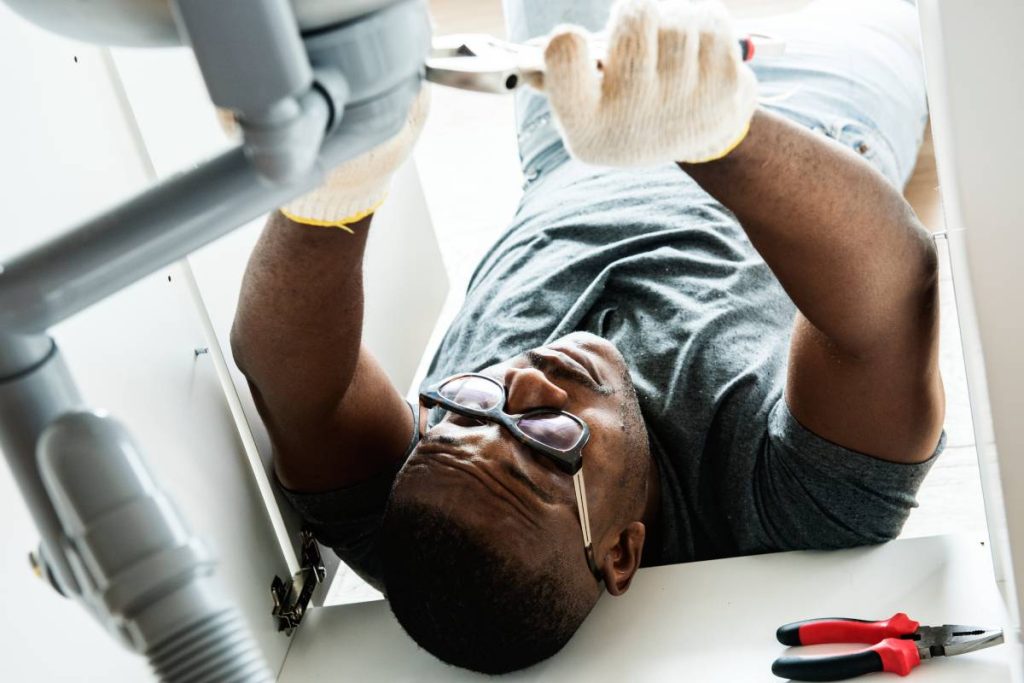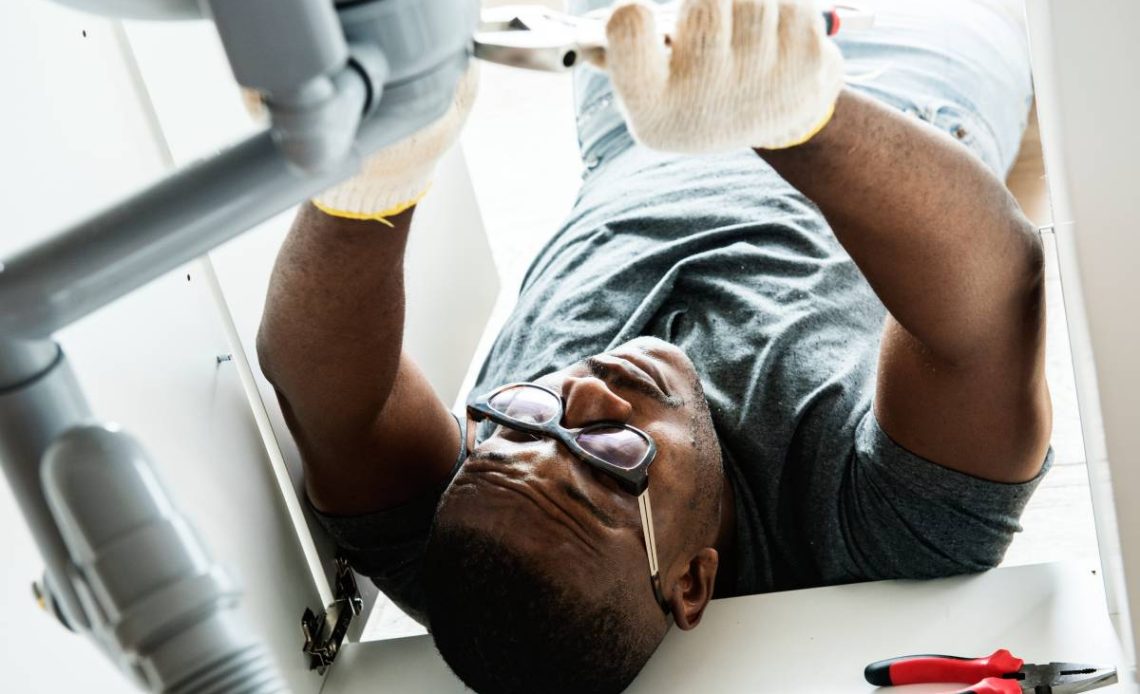Being a plumber means dealing with a wide range of plumbing issues, from simple fixes like leaky faucets to more serious problems such as sewer line backups. Even a minor pipe leak can cause significant damage to a building’s structure and its contents.
Additionally, plumbers often have to respond to urgent and potentially hazardous situations, requiring them to be available 24/7 and handle the worst-case scenarios.
To minimise the occurrence and severity of these problems, it’s essential to understand the common issues and their causes.
Related article: Are plumbers in high demand in Australia? How much do plumbers make in Australia? Do plumbers need a license in Australia?
Here Are Some 26 Frequent Challenges Plumbers Encounter
Leaky Faucets
Fixing dripping faucets is a common task for plumbers. Unfortunately, many people attempt DIY repairs that can make the issue worse, leading to water wastage and potential flooding. Plumbers typically turn off the water source before addressing the problem.
Chemical Hazards
Plumbing issues in homes and industrial settings can involve dangerous chemicals that pose health risks. Plumbers may encounter substances like lead, arsenic, silica, moulds, glue, solvents, and grit, making protective measures crucial.
Licensing Requirements
For significant plumbing repairs, homeowners seek licensed plumbers. Plumbers must maintain valid licenses to reassure customers about their qualifications and set pricing standards. Keeping an updated and clean license is essential for a plumber’s reputation.

Blocked Shower or Bathtub Drains
Slow-draining bathroom sinks, hair, and soap clogs can lead to obstructed bath and shower drains. Plumbers use tools like shovels or plumber’s snakes to clear the blockages, but severe cases may involve dealing with waste and filth.
Running Toilets
Plumbers are responsible for fixing running toilets, often caused by a faulty toilet flapper that doesn’t seal properly. Addressing this issue can be unpleasant, as it involves handling human bodily fluids and waste.
Health and Safety Risks
Plumbers face various risks on the job, including cuts and burns to the skin. Working in dimly lit areas can strain their eyes, while exposure to chemicals and contaminants can irritate their skin. The presence of sharp objects in the work environment also poses a risk to their eyes. Wearing protective eyewear is crucial to minimise these hazards.
Leaky Pipes
Leaky pipes can be a real headache for plumbers. They not only cause inconvenience but also damage floors and furniture. Leaks usually occur at pipe joints, and often, a temporary fix involving tape, compounds, or fillers can solve the problem. However, some clients prefer a more lasting solution, which means replacing the pipe and fittings. This can be time-consuming and may not bring in much money.
Dealing with Electrical and Combustible Hazards
Many homes have water systems and electrical lines running close to each other, creating a dangerous mix. Working on water heater systems can be risky, and even a small scratch on gas lines can be life-threatening. To stay safe, plumbers need to take precautions, including wearing protective clothing, turning off electricity and water as necessary, and being extremely cautious in potentially explosive or electric environments.
Working at Heights
Working at elevated heights is a common cause of workplace accidents. Plumbers need to use safety gear like harnesses, ensure ideal weather conditions, and perform routine inspections to work safely above the ground. Using scaffolds, cherry pickers, or movable scaffolding can be risky, and ladders should only be used for quick tasks to prevent slip-and-fall incidents, which are common types of workplace injuries.
Rapid Drains
Ideally, pipes should allow water to flow quickly. When they slow down, it’s a sign of a clog. One of the most common culprits is a grease clog, often caused by improper drain use over the years. Cleaning up these greasy deposits can be quite challenging.
Also read: Pool plaster: Is it expensive? Is it strong? How long does it last?
Liability for Mistakes
Plumbers need to be cautious because a single mistake can lead to significant property damage. If our work results in harm to a client’s property, we are responsible for compensating them. This pressure emphasises the need for careful attention to detail in our tasks.
Mould Allergies
Exposure to mould can be a problem for plumbers, leading to allergies like watery eyes, runny noses, sneezing, itching, coughing, and even difficulty breathing and headaches. Working in old pipelines or damp environments often exposes us to mould spores, and repeated contact can increase our sensitivity and the risk of developing asthma.
Quick Solution Demands
Some clients may not realise that not all plumbing work can be done rapidly. For example, installing horizontal drain pipes requires careful attention to ensure proper slope for waste and debris prevention. When plumbing emergencies demand fast solutions, it can create significant mental pressure.
Water Heater Issues
Plumbers often deal with water heater installations and maintenance. This service is crucial because water heaters are essential appliances. However, water heater problems can be challenging, including issues like failing heating elements, systems with rust or dirt buildup, loose or faulty electrical connections, and incorrect water heater setups.
Overwork During Celebrations
Many people choose to renovate their homes before special occasions like Christmas. This means we, as plumbers, often take on numerous projects and work around the clock. The extra hours can be mentally and physically draining.
Dealing with Old Plumbing Systems
If your house is over 30 years old, it’s possible that it has outdated plumbing materials. I’ve encountered many older fittings that are no longer in common use. It’s crucial to gain the necessary knowledge and skills before working on these older systems.
Precise Installation of Gas Appliances
Installing gas appliances correctly is of utmost importance, as improper installation can pose a significant risk to lives. Handling gas piping can be dangerous, and any mistakes can have severe consequences, for which we may be held responsible.
Boiler Troubleshooting
If your boiler is malfunctioning, it’s essential not to attempt to remove the boiler case yourself. Doing so can increase the risk involved in plumbing work. Instead of risking your safety and making the situation worse, it’s best to let us handle the repairs and ensure a safe and effective solution.

Pipe Belly
Over time, structures can affect the pipes beneath them, whether those pipes are buried underground or encased in a concrete slab. This can lead to blockages in the water flow and the formation of pools that collect debris or silt. Shifting pipes can create a negative slope or “belly,” potentially causing leaks if left unattended. In such cases, trenchless pipe bursting repair may be the best solution, but it requires an initial assessment of the severity at the location.
Pipeline Rust
Older homes often have metal plumbing, with galvanised steel and copper being common materials. These metal pipes are prone to corrosion, which can lead to leakage issues. In many cases, it’s necessary to replace the water supply lines that pass through these corroded pipes.
Preventing Winter Pipe Bursts
In the winter, freezing water can cause pipes to burst. To prevent this, consider the following steps:
- Allow faucets connected to exposed pipes to drip cold water during extremely low temperatures.
- Even a small, constant flow of water can help prevent ice buildup.
- Maintain a consistent thermostat setting day and night to keep the pipes from freezing.
Compensation Challenges
Plumbers are typically paid based on the job completed, rather than by the hour when it comes to severance. This compensation model is essential to understand because plumbing work can be risky, messy, and challenging. While plumbers provide valuable services to help people, the service charge may not always reflect the difficulty and hazards of the job.
Lead in Service Lines
If your city uses lead service lines and galvanised plumbing, there can be potential issues. Water flows into your home through a service line, and if that line needs repairs, lead contamination can become a concern. Plumbers need to inspect the pipelines and water to check for excessive lead levels to prevent water poisoning. In older homes, it may be necessary to install a water filtering system.
Working in Confined Spaces
Plumbers frequently work in confined spaces like boilers, water tanks, drains, and vents. These areas may have limited oxygen levels, leading to breathing difficulties and potentially severe health issues. Plumbers often handle emergencies and face additional risks, making readiness and 24/7 availability essential.
Asbestos Exposure
Many plumbers encounter the risk of asbestos exposure, a leading cause of respiratory illness and death. Asbestos was commonly used for insulating pipes, pumps, valves, and gaskets due to its fire-resistant properties. Plumbers often work in environments where asbestos is present, putting them at risk of exposure, which can be up to 100 times the annual average. Understanding and addressing this risk is crucial.




